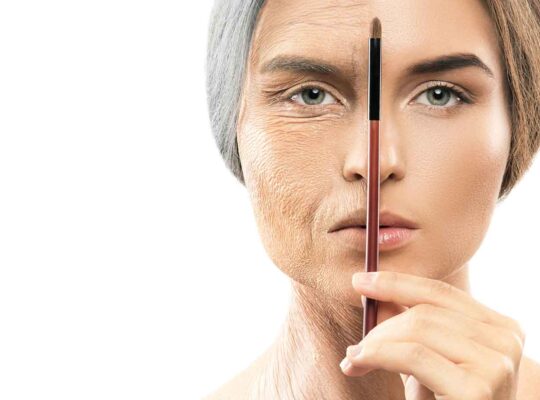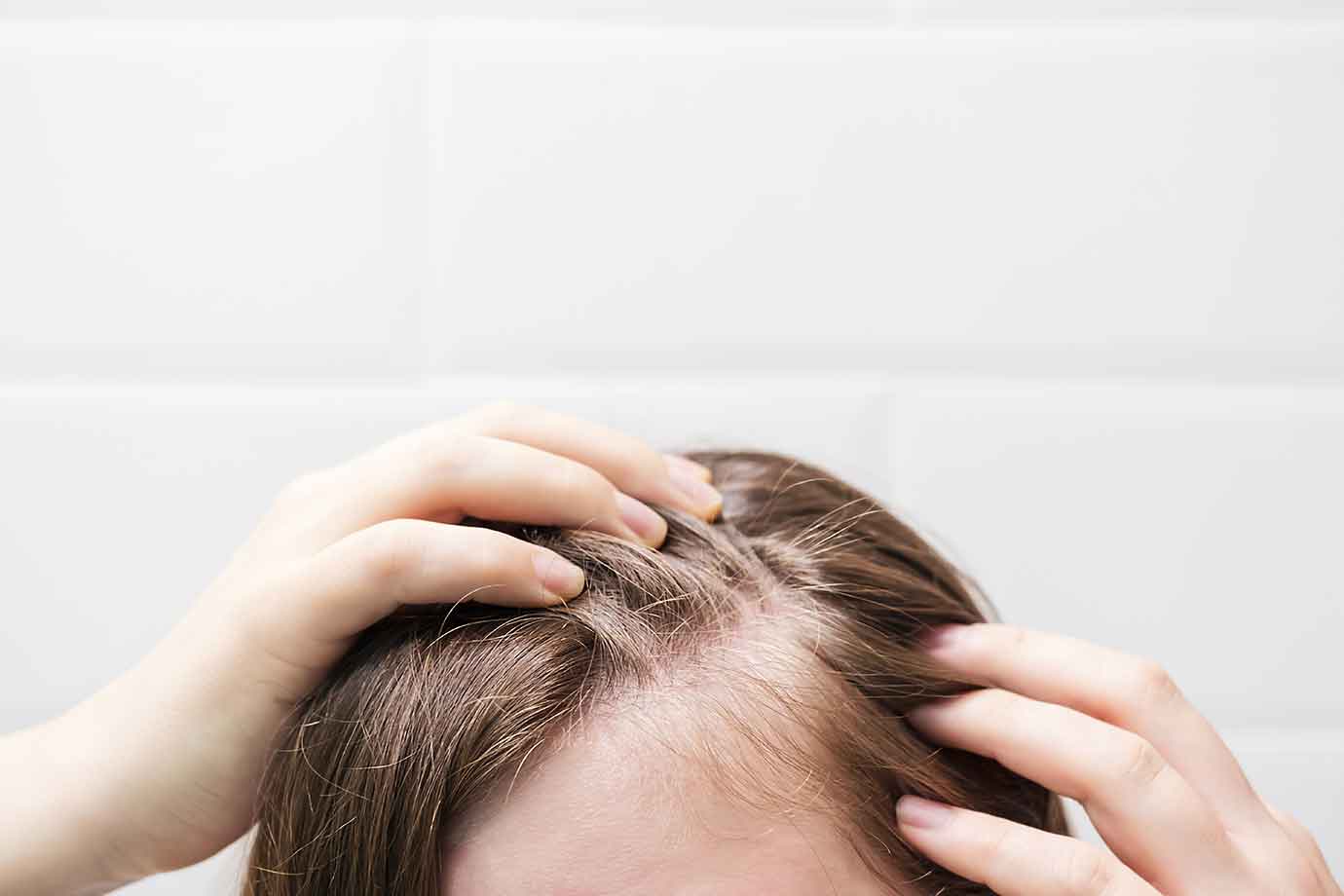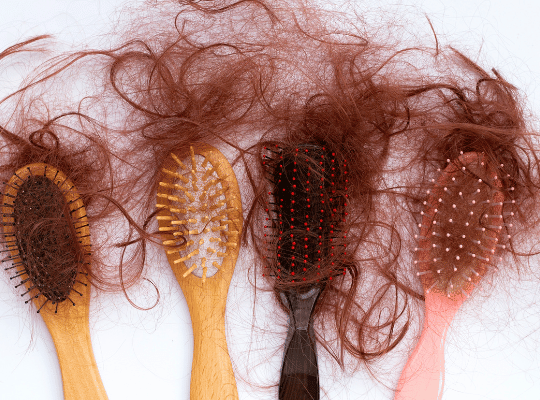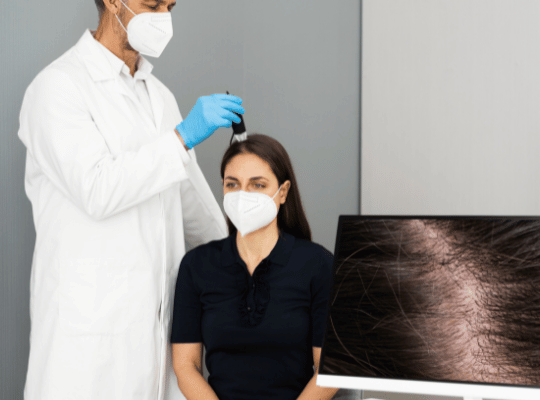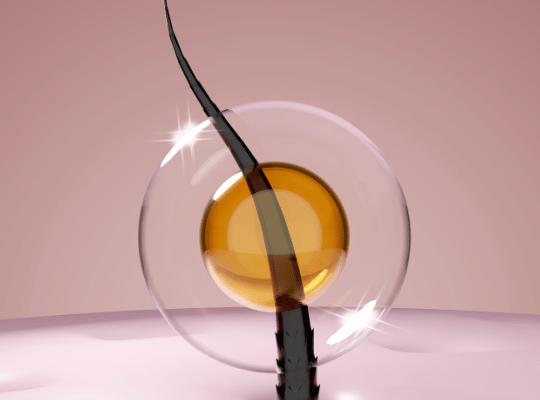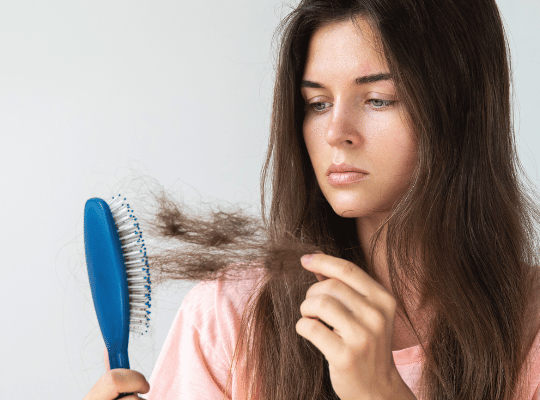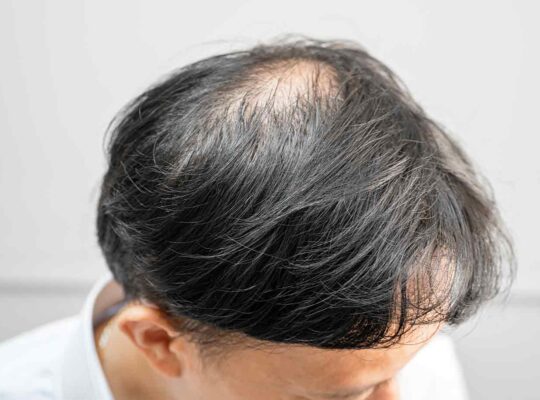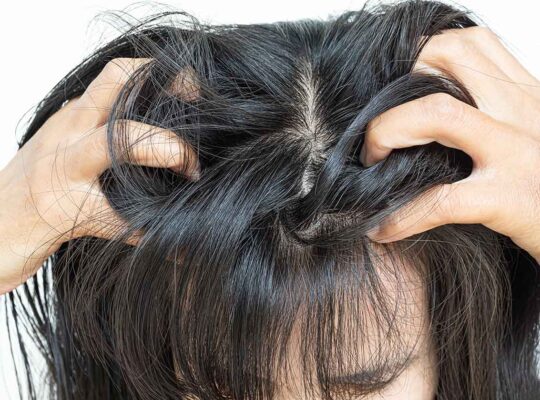Understanding Hair Loss: The Hair Growth Cycle and Telogen Effluvium
Have you ever wondered how your hair grows and why sometimes it seems like you’re losing more hair than usual? Hair growth is actually a cool process that goes through three main stages: growing, transitioning, and resting. Let’s dive a bit deeper into each:
1. Growing Stage (Anagen Phase): This is when your hair is actively growing. Imagine this as your hair’s growing-up phase that lasts for several years. During this time, your hair is busy getting longer and stronger.
2. Transitioning Stage (Catagen Phase): After growing, your hair doesn’t just jump straight to falling out. It goes through a short phase, kind of like a brief rest, for a few weeks. In this stage, the hair follicle shrinks a tiny bit, and the hair gets ready to say goodbye.
3. Resting Stage (Telogen Phase): Finally, we’ve got the chill phase, lasting about three months. It’s when the hair takes a long rest before it eventually falls out. But don’t worry; this is totally normal because it makes room for new hair to grow.
Sometimes, though, something called telogen effluvium can happen. This is a fancy term for when too many hairs decide to move to the resting stage too soon, due to stress like big life changes, not eating right, hormones doing their thing, or getting sick. This leads to more hair falling out than usual. But understanding these stages helps us spot the signs early and get the right help to keep our hair healthy and us feeling good about ourselves.
Understanding When Hair Falls Out a Lot: Telogen Effluvium Explained
What It Is
Imagine your hair goes through different stages, kind of like how a plant grows, blooms, and then rests. Telogen effluvium is when too many of your hairs decide to take a break at the same time. This means you might notice a lot more hair falling out than usual, especially when you’re brushing or washing it. This can happen a few months after something really stressful happens to you.
The Two Kinds
There are two main types of this hair-falling-out situation. The first kind happens all of a sudden after something big stresses you out, like getting really sick or having surgery. This type usually stops on its own after a little while, usually within six months. The second kind sticks around much longer, maybe even a few years, and it can be harder to figure out why it’s happening. For this kind, people might need to do a bit more detective work to solve the problem.
What You Notice
The biggest thing you’ll notice if you have telogen effluvium is a lot of hair falling out. It might seem like there’s hair everywhere – in the shower, on your brush, and maybe even on your pillow. Even though it might make you feel worried, noticing this can help you get started on fixing the problem. Knowing what’s going on with your hair is the first step in taking care of it and feeling better.
Causes of Telogen Effluvium
Ever wonder why sometimes your hair starts falling out more than usual? It turns out, things like being super stressed, not eating right, going through big body changes, or even certain medicines could be the reason! Let’s dive into these reasons to see how we can keep our hair from saying goodbye.
Why Does Stress Make My Hair Sad?
Did you know that if you’re going through a lot of stress, like moving to a new school or losing something really important, your hair can actually get stressed out too? When we’re stressed, our hair cycle gets all mixed up and sometimes decides it needs a break. But hey, figuring out what’s stressing you out and finding cool ways to chill can really help your hair get back to its happy self.
How Does What I Eat Affect My Hair?
Yup, what you eat matters a lot for your hair! If you’re not getting enough iron and protein, your hair might not be as strong or healthy as it could be. Iron helps your hair get enough oxygen, and protein is like the building block that makes your hair strong. So, if you notice your hair isn’t looking its best, it might be good to check what’s on your plate and maybe even talk to someone about adding some vitamins to your diet.
Can Big Body Changes Affect My Hair?
Definitely! When your body goes through big changes, like growing up, expecting a baby, or other major life events, your hormones can go a bit wild. These changes can also mess with your hair growth. Keeping in touch with your doctor to understand these changes can really help you take better care of your hair during these times.
What About Medicines and Other Health Stuff?
Sometimes, the medicines we take to feel better from other health issues can make our hair a bit unhappy. Or if we’re dealing with a big health challenge, our hair might get weak too. Being open with your doctor about everything you’re experiencing can help figure out the best way to keep both you and your hair healthy.
It’s really interesting how everything in our body is connected, right? By keeping track of these things and taking care of our overall health, we can help keep our hair looking awesome.
Diagnosis of Telogen Effluvium
Checking for Hair Loss
When doctors think someone might be losing more hair than usual, they start by looking closely at the person’s hair and scalp. This helps them see how much hair is falling out and what the hair roots look like. They will ask questions to find out more about the person’s health and things that might be causing the hair to fall out, like stress or not eating well.
Tests for Finding Out More
Doctors might do some tests to learn why the hair is falling out. One test is gently pulling on a bit of hair to see how many strands come out. Another test counts how much hair falls out when the person washes their hair. Sometimes, doctors also check the person’s blood to see if there’s a health issue, like low iron levels or hormone changes, that could be making their hair thin.
Treating Hair Loss
Fixing the Root Problem
The best way to handle hair loss is by taking care of what’s causing it. It might be stress, not eating the right foods, or hormones acting up. The person and their doctor will work together to figure out the cause and plan how to fix it, helping the hair grow back healthily.
Medicine and More
There are special treatments, like a medicine you put on your scalp, that can help hair grow back. Sometimes, doctors suggest vitamins or other medicine depending on the cause of the hair loss. It’s important to talk to a doctor to choose the best treatment.
Changing Your Lifestyle
Doing things differently in daily life can also make a big difference. Managing stress through activities like yoga or walking, and eating foods that are good for your health can help your hair. These habits make your whole body healthier, which is good for your hair too.
Preventing Hair Loss
To keep hair healthy and prevent it falling out, eating well and staying active are key. Foods with lots of nutrients and getting enough exercise make sure your hair has what it needs to grow strong. Making these healthy choices helps take care of your hair and your whole body.
Managing Stress for Your Hair
We all need to learn how to chill out because when we’re super stressed, we can start losing our hair. Doing relaxing things like meditation, being mindful, or doing yoga can help keep us calm and stop our hair from falling out. It’s like giving our minds a mini-vacation. By doing these cool activities, we can fight off stress, which is often the reason our hair decides to leave us. Taking care of ourselves by relaxing more can actually help keep our hair happy and healthy.
Going to the Doctor Regularly
It’s really important to keep an eye on our health with regular doctor visits because sometimes other health problems can make our hair fall out. Checking in with the doctor can help catch any sneaky issues, like with our thyroid or not eating the right nutrients, before they mess with our hair. Staying on top of our health means we’re taking charge and making sure we stay as healthy as possible, head to toe.
Dealing with Hair Loss
How to Feel Better About It:
Losing hair can make us feel pretty bummed out, so it’s important to have people to talk to. Joining groups where people know what you’re going through can make a big difference. You can also talk to a counselor or someone who understands feelings to help deal with any worry or sadness. Remember, it’s okay to ask for help and take care of how we feel inside.
Taking Care of Your Hair Gently
If our hair is falling out, we need to be super gentle with it. Use a wide-tooth comb especially when your hair’s wet to avoid breaking it. Choose shampoos that are gentle and don’t strip away your hair’s natural goodness. Also, trying not to use heat like flat irons or harsh chemicals too much can keep our hair from getting more damaged. By taking it easy on our hair, we can help it grow back stronger.
Taking care of hair loss means doing a few things like going to the doctor, making some changes in how we live, and taking care of our feelings. Understanding why we’re losing hair and making good choices can really help our hair grow back and make us feel happier. But everyone is different, so it’s really important to talk to doctors to get the best advice. When we start to look after our hair and health, we’re not just helping ourselves – we’re getting back our sparkle and confidence.
FAQs
- What is telogen effluvium?
Telogen effluvium is a temporary form of hair loss that occurs when a significant number of hair follicles enter the resting phase of the hair growth cycle, often triggered by stress, hormonal changes, nutritional deficiencies, or other underlying health issues.
- How can I prevent telogen effluvium?
Preventing telogen effluvium involves maintaining a healthy lifestyle, managing stress effectively, ensuring a balanced diet rich in essential nutrients, and scheduling regular health check-ups to monitor any potential health issues.
- Can telogen effluvium be treated?
Yes, telogen effluvium can be treated through a combination of lifestyle modifications, dietary improvements, stress management techniques, and, if necessary, medical interventions prescribed by healthcare professionals.
- How long does telogen effluvium last?
The duration of telogen effluvium varies between individuals, typically lasting from six months to a year, depending on the underlying cause and the effectiveness of the treatment approach.
- Is hair loss due to telogen effluvium permanent?
No, hair loss associated with telogen effluvium is generally not permanent, and with appropriate management and care, individuals can expect hair regrowth as they address the underlying triggers.


